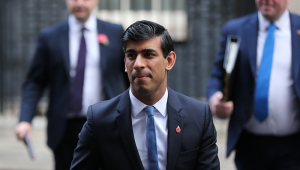Today Philip Hammond had his first chance to show what kind of chancellor he is going to be. And the answer (for the football fans amongst you) seems to be more of a workman-like James Milner than a flashy Eden Hazard.
Faced with the OBR’s sharply lower growth forecasts for the next few years, compared to the ones they made in March – mostly a consequence of the Brexit vote – and a fiscal position far, far worse than predicted in the March Budget, Hammond has mainly fiddled. There is a danger that the history books will mainly think of him as ‘90% Hammond’, as he oversees our debt ratio going over 90% in 2017/18, an astonishing nine percentage points higher than the figure his predecessor predicted for that year last spring.
Certainly there are fewer chancellor gimmicks than we got used to with George Osborne, but the announcements themselves have been spun up a bit beyond the reality. More funding for infrastructure and science, as well as housing are always welcome, but they are relatively small beer and will have their full impact only some years in the future. Cutting corporation tax, as previously announced, may get a few business cheers but is unlikely to address the real issues underlying Britain’s poor productivity performance since 2008 and the imminent threat of having no big single European market for entrepreneurs and firms to sell into.
Equally, despite lots of rhetoric about the ‘just about managing’ the government has continued with previously announced tax policies – raising thresholds that really do them little good given their cost in terms of revenue foregone. And despite a small but welcome change to the taper rate on universal credit, it does not look at the moment like a programme that will do much to help people get on.
Maybe Hammond is right to be cautious at this point given the tough set of forecasts he has to deal with, the degree of uncertainty post-Brexit and Trump, and the French and German elections looming. His more flexible fiscal rules give him room to breath – although keeping markets guessing as to where he is really heading. But we can’t just tread water until we leave the EU.
By the time we get to the Budget, he is likely to need a clearer and bolder strategy than the one set out in this Autumn Statement.





















